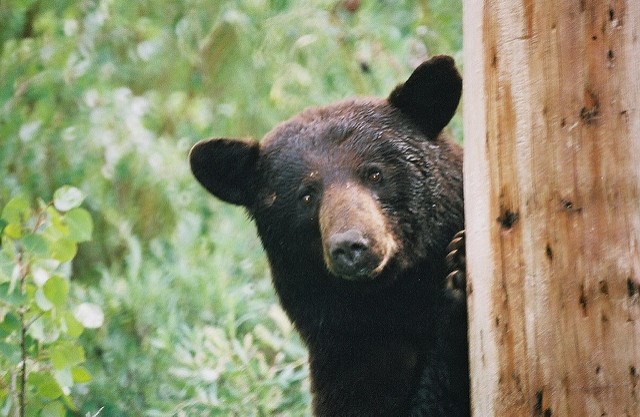In response to reports of animals eating garbage, birdseed and food scraps, the SLRD will be penalizing people who leave wildlife attractants unsecured.
The bylaw was created partially in response to the killing of a highly-habituated black bear last year in Britannia Beach.
The bear had been breaking into garbage cans, bird feeders and garages in search of food. It was also reported that some bears in the area were teaching their cubs to eat trash.
“Wildlife and specifically black bears are becoming conditioned to these food sources, which results in multiple callouts to the conservation officer and bylaw officer in areas such as Britannia Beach, and results in the destruction of bears,” reads an information report presented to the electoral area directors.
It’s hoped that the new bylaw, which was adopted Feb. 7, will put an end to such problems.
The regulations will be in effect for Electoral Areas B, C and D. While some municipalities in the SLRD already have anti-attractant measures in place, this will be a first for some rural areas.
Authorities are still contemplating whether the SLRD will create similar measures for Electoral Area A.
One area director hopes the rollout of the bylaw will be gradual, so residents can adjust.“We’d start off with working with the Britannia Beach Community Association and the Furry Creek Community Association so people understand the bylaw — what it says and what its purpose is,” said Tony Rainbow, who represents Area D on the Squamish-Lillooet District.
Area D includes unincorporated communities and rural areas surrounding Squamish. Furry Creek, Porteau Cove and Britannia Beach are some examples.
Rainbow said that the first phase will be to educate people on what’s expected with respect to securing attractants.
He said he hopes to be able hold orientations and information sessions to get everyone on the same page.
“We want to talk to people to make sure they understand what it is that’s required and why,” he said.
If some people are found to be contravening the bylaw initially, Rainbow said he hopes that SLRD staff can give them a warning first and some educational material before taking further action.
Ultimately, if no other options are available, fines will be issued, he said.
The bylaw requires that trash be secured. Furthermore, coops, pens and beehives must be enclosed by electric fencing.
Rainbow said he hasn’t worked out exactly how authorities will enforce the regulations, but the bylaw states the maximum penalty is either a $2,000 fine, six months of jail, or both.



